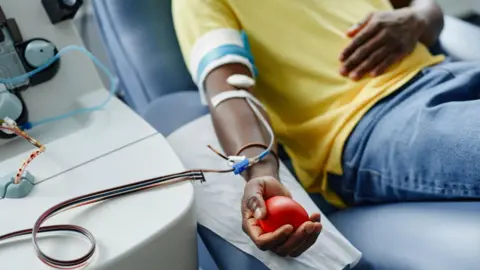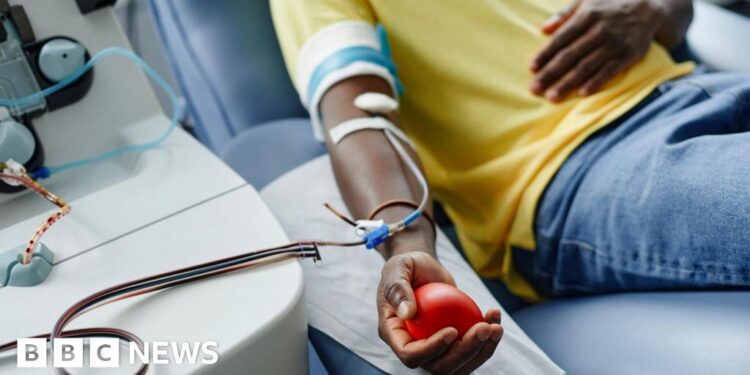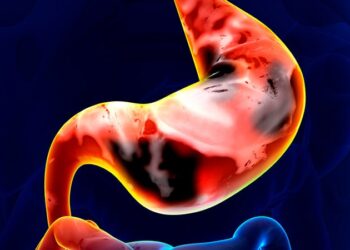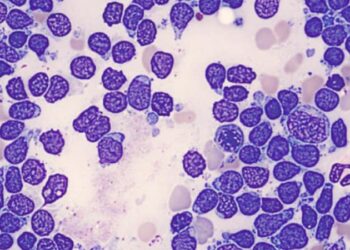 Getty Images
Getty ImagesPeople who give blood regularly are more likely to have genetic changes in their blood that could cut the risk of cancer developing, a study suggests.
The researchers, from the Francis Crick Institute, say the findings are “fascinating” and could help understanding of how and why blood cancers develop.
Their study compared the blood of two groups of healthy male donors in their 60s – the first had given blood three times a year for 40 years, the other only about five times in total.
Subtle genetic differences not linked to a high risk of blood cancer were present in more of the frequent-donor group – but because healthier people tend to give blood, this skews the picture.
With age, the cells in the body – including the blood – naturally develop mutations, which increases the risk of diseases such as cancer developing.
When people donate blood, stem cells in the bone marrow make new blood cells to replace the lost blood – and this could shape the stem cells’ genetic diversity.
The researchers found a similar level of natural genetic mutations in the blood of the two groups – 217 frequent and 212 irregular donors.
But the type of mutation in stem cells was subtly different in:
- 50% of the frequent donors
- 30% of the irregular donors
Analysed in the lab, this mutation grew in a different way in different environments to other mutations linked to diseases such as leukaemia, a type of blood cancer.
“It’s a type of mutation that is not associated with high risk of leukaemia development,” study author Dr Hector Huerga Encabo said.
And when mice were injected with these human blood stem cells in the lab, the cells were found to be good at making red blood cells – a positive sign, Dr Encabo said.
Everyday things
The research, published in the journal Blood, was conducted with scientists in Heidelberg and with the help of the German Red Cross blood donation centre.
But the results do not prove donating blood reduces the chances of early blood cancer mutations developing.
“It might be that people who donate blood are more likely to be healthy if they’re eligible and this is also reflected in their blood-cell clones,” senior author Dominique Bonnet, who heads up a stem-cell laboratory at the Crick, said.
And the research team now plans to analyse the blood of much larger numbers of people, including women.
The current findings are a reminder that little everyday things – how people’s environment changes – as well as their age, affects their tissues and blood, changing the stem cells, Dr Encabo said.
‘Healthy-donor effect’
NHS Blood and Transplant said the research was “interesting” but further work was needed, because healthier people were more likely to donate.
“The ‘healthy-donor effect’ makes it difficult to study donor health generally,” medical director Dr Lise Estcourt said.
“However, the most important thing is that people chose to donate to improve the health of others.”
Current stocks were “critically low”, the organisation added.
Who can donate?
In the UK, fit and healthy 17-65-year-olds can give blood – if they meet all the other criteria – but not if they have had cancer, an organ transplant or tested positive for Human Immunodeficiency Virus (HIV), among other reasons.
And some people may have to wait, for example if they have had a baby in the past six months or recently had a tattoo or piercing.
Source link : https://www.bbc.com/news/articles/cg4k37qz4g5o
Author :
Publish date : 2025-03-11 13:38:00
Copyright for syndicated content belongs to the linked Source.















